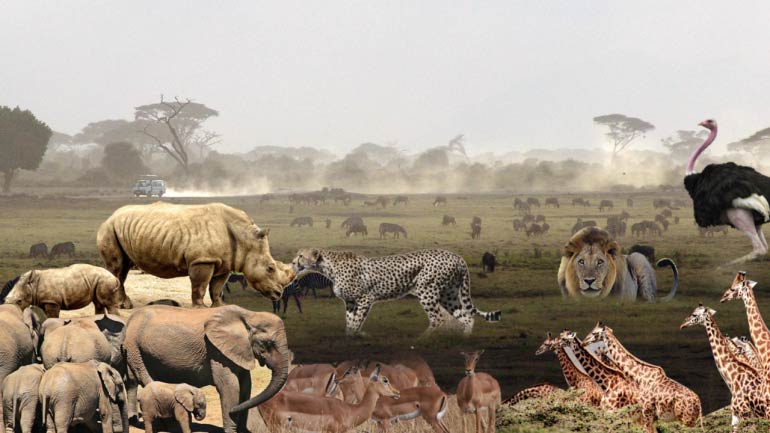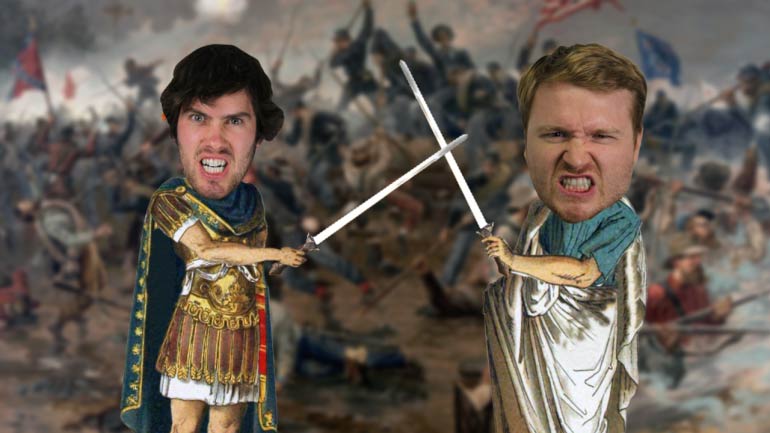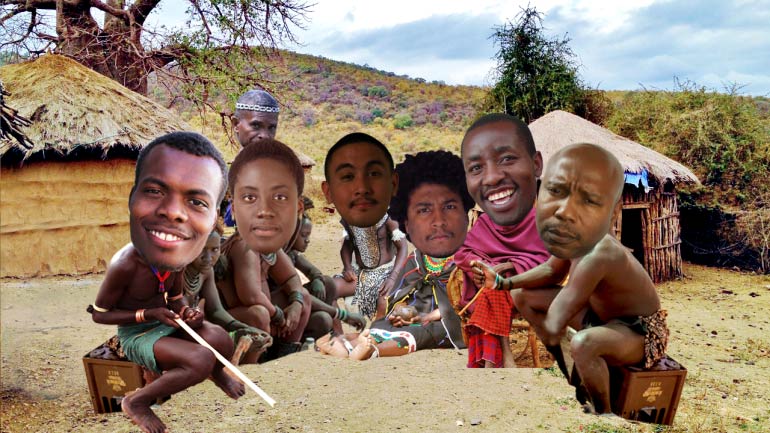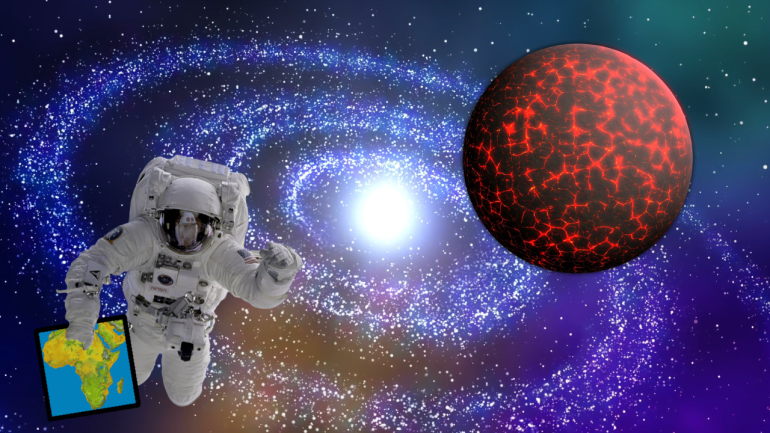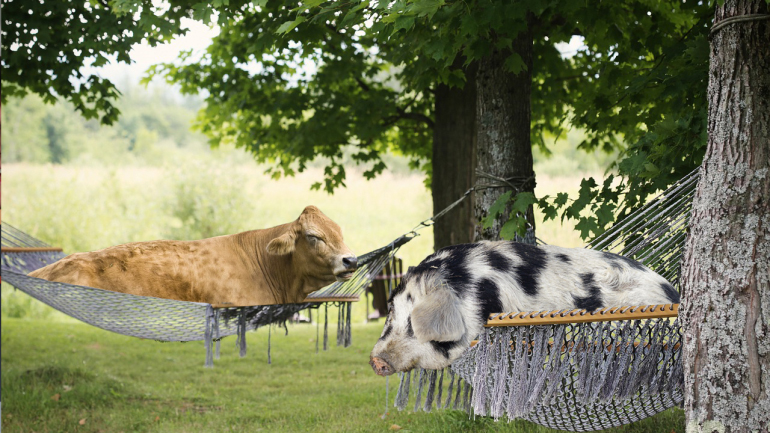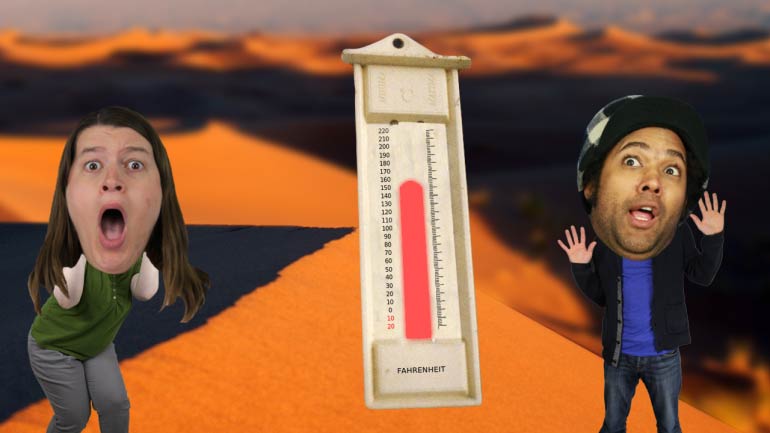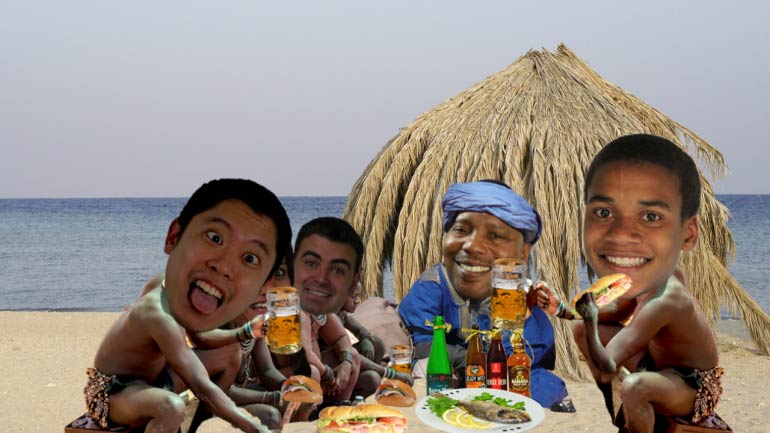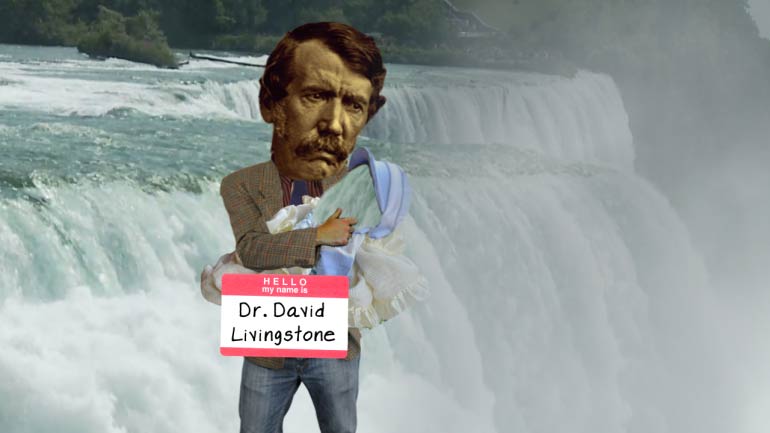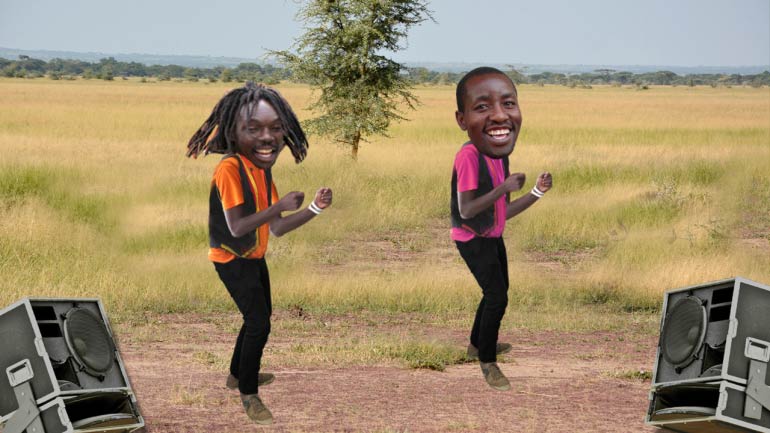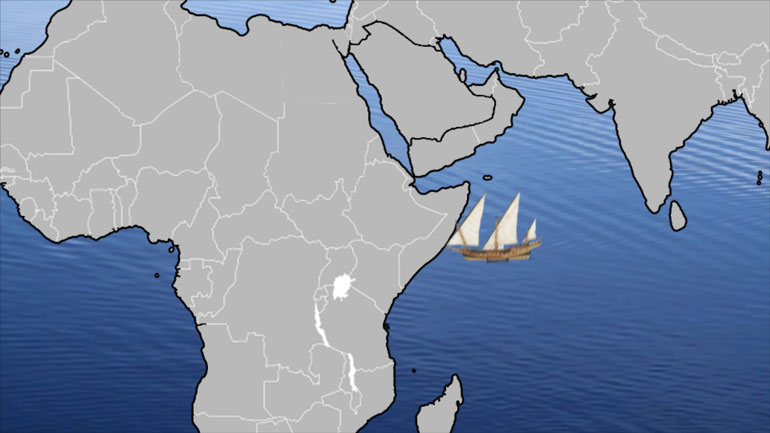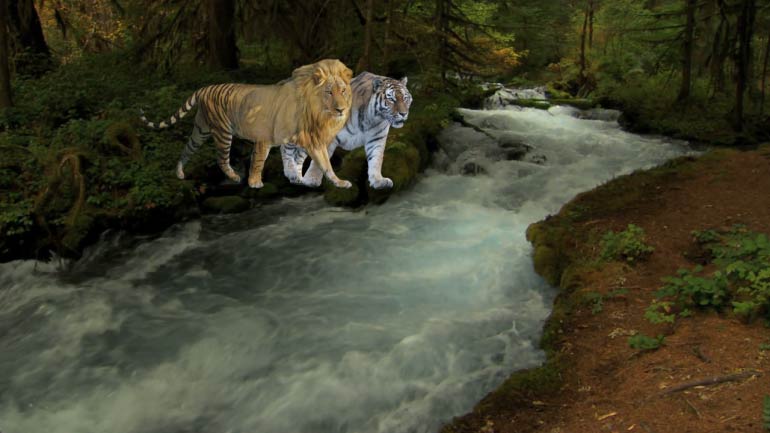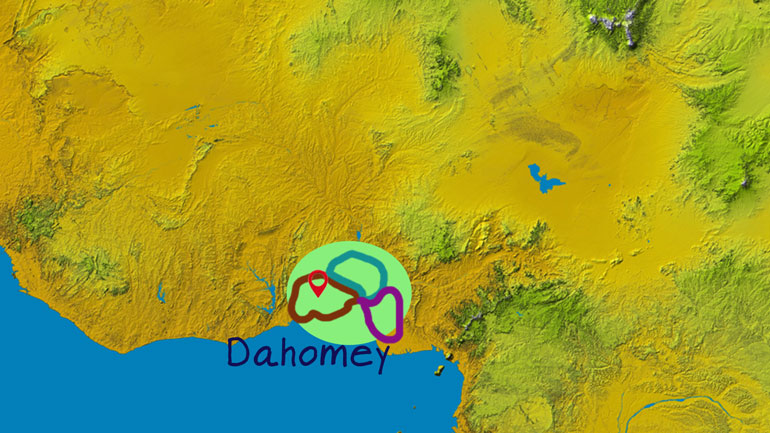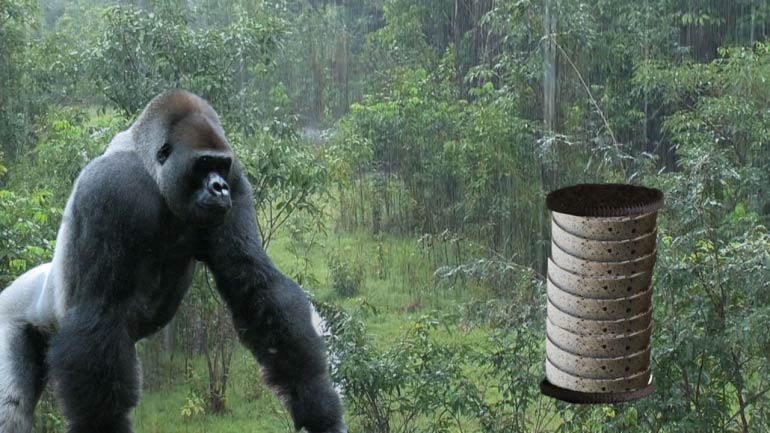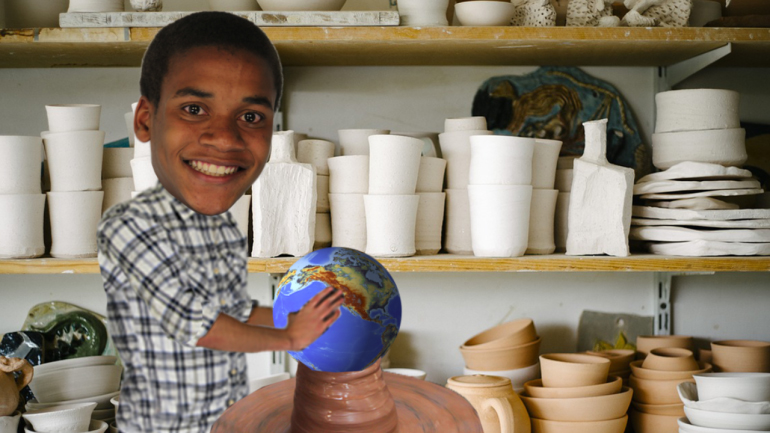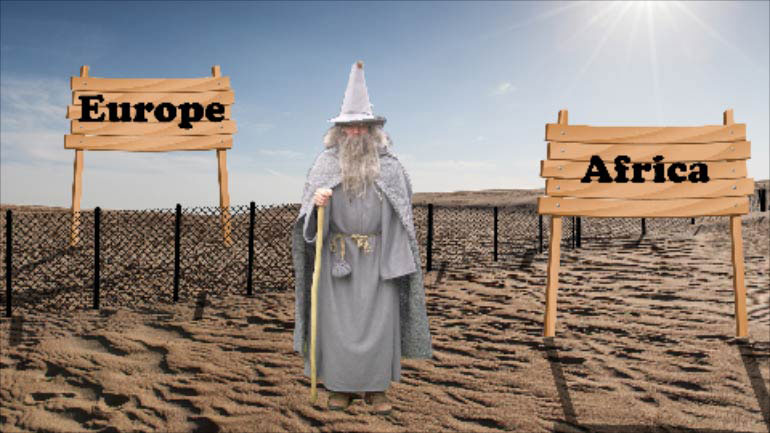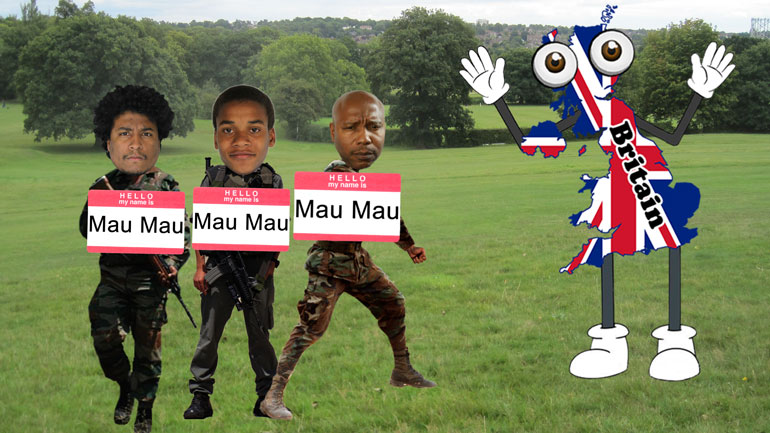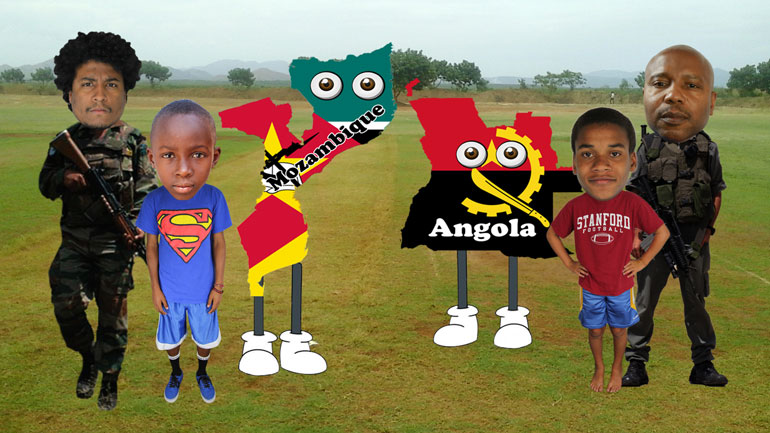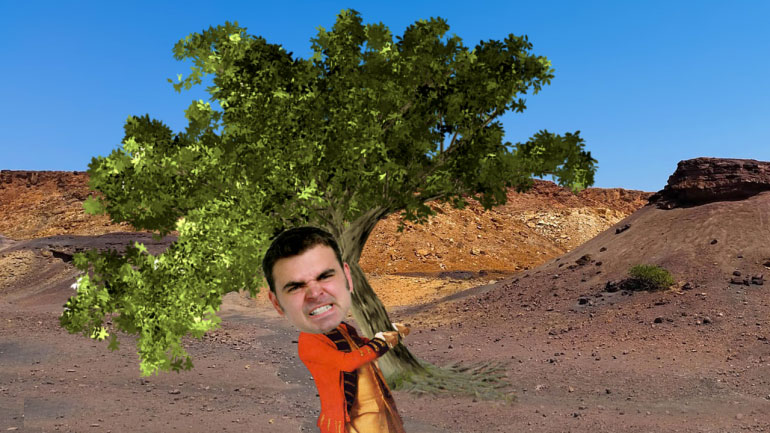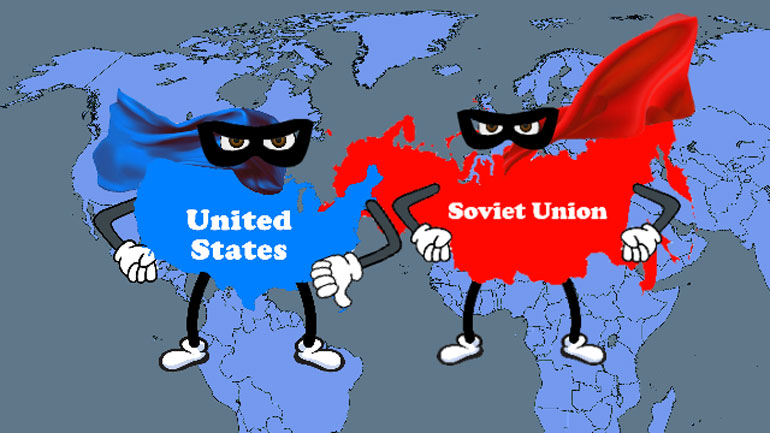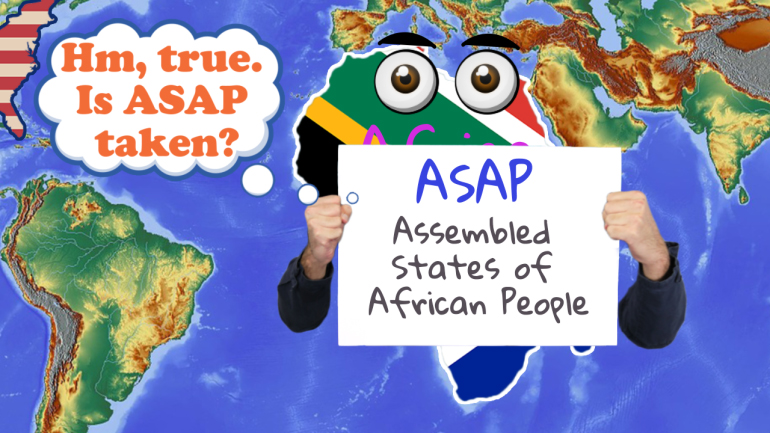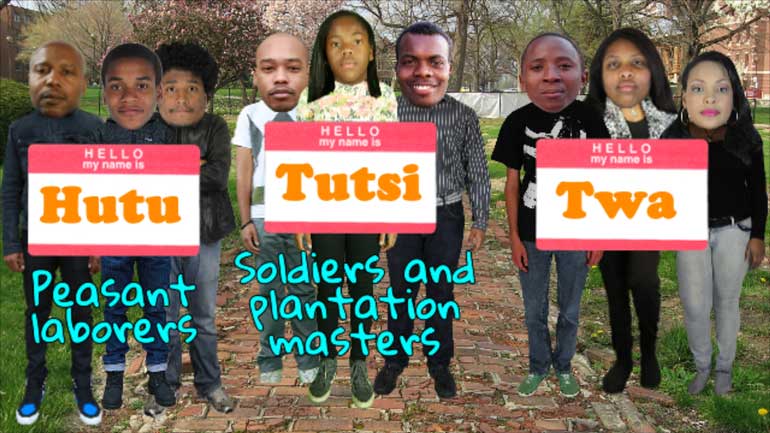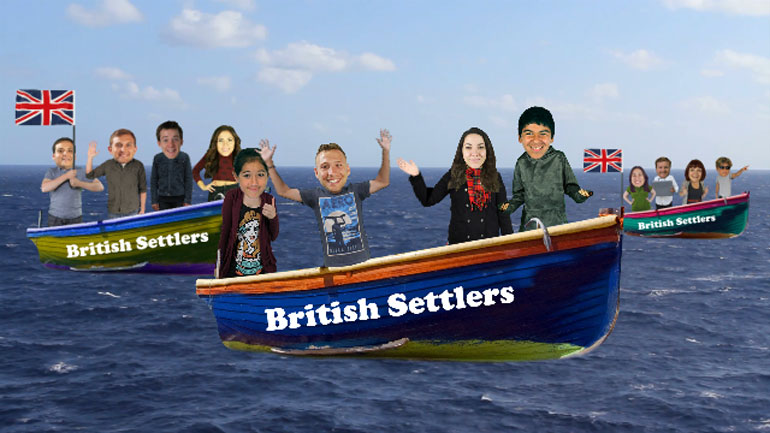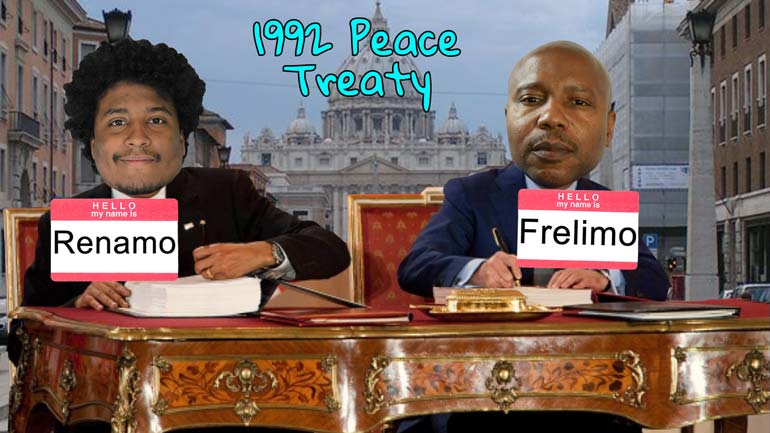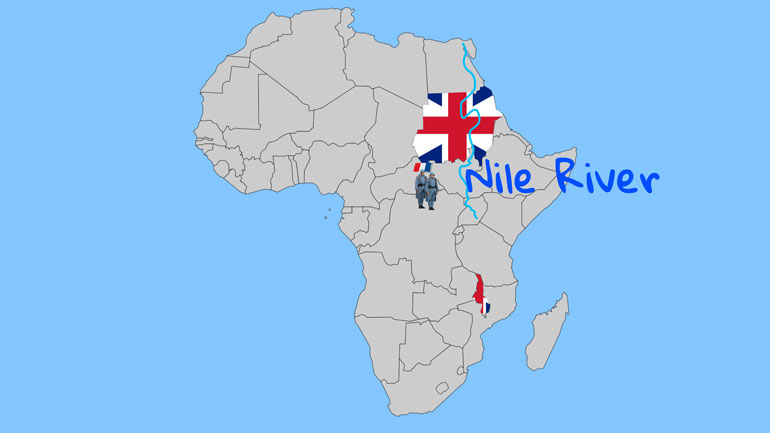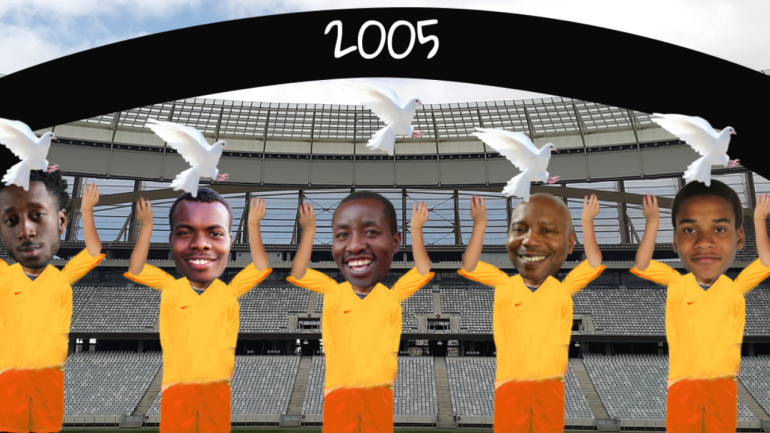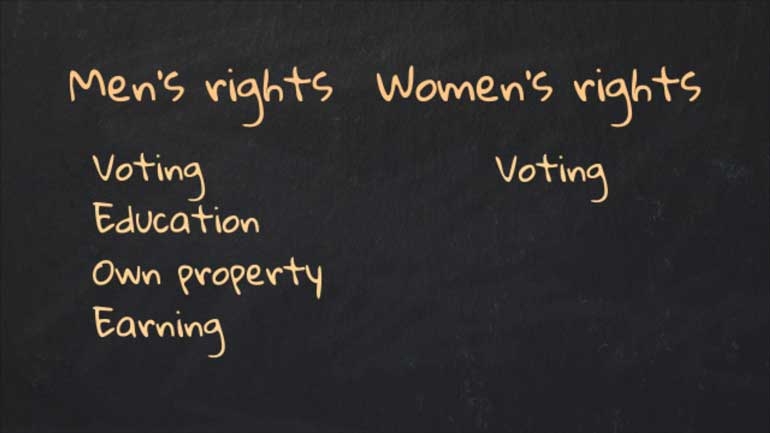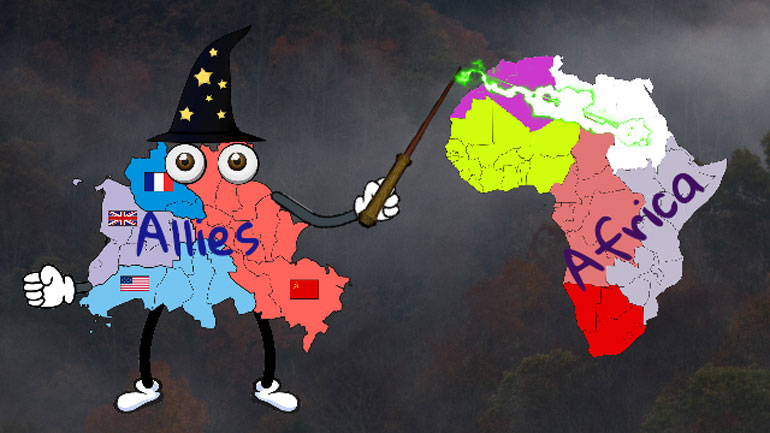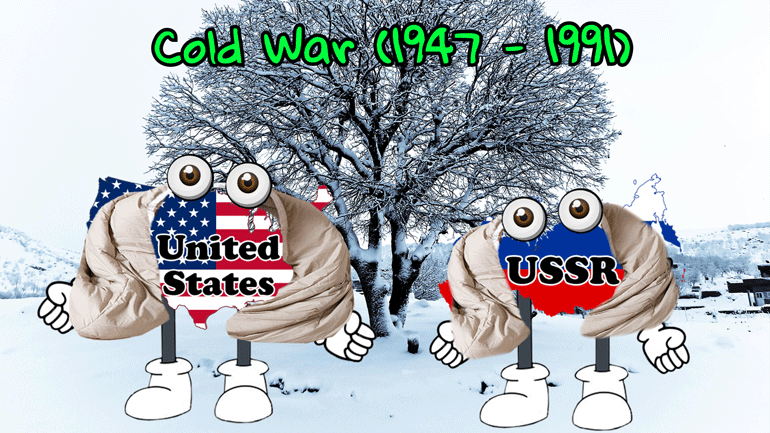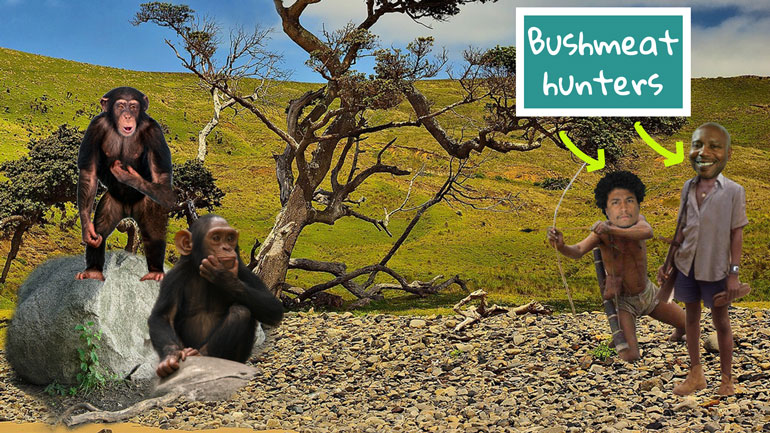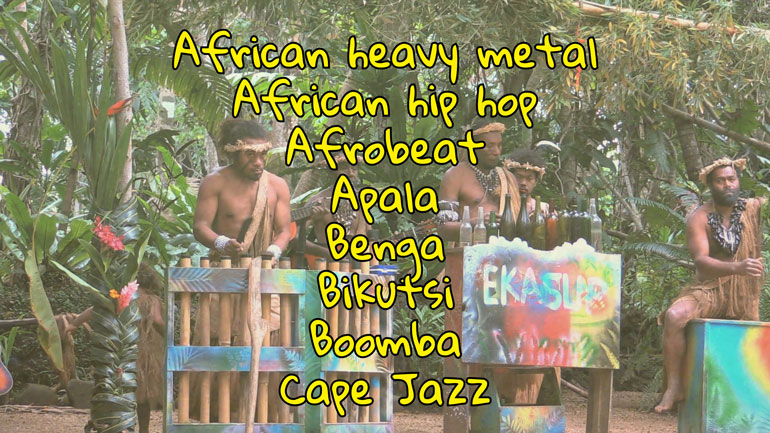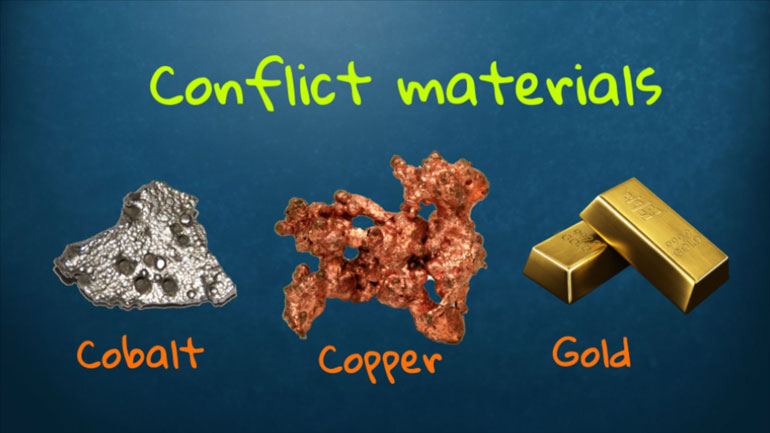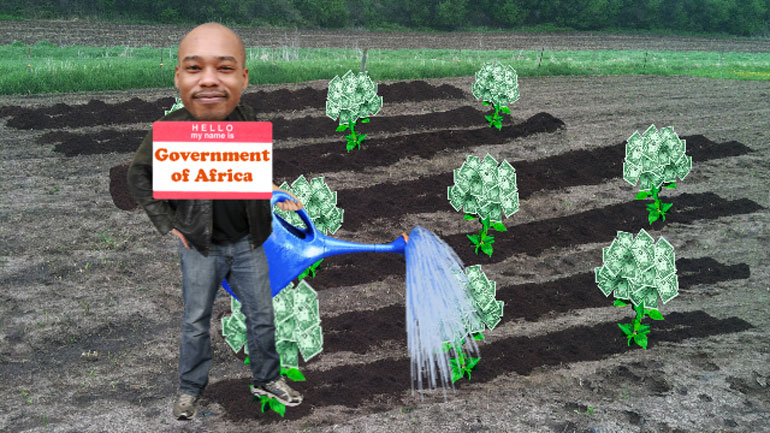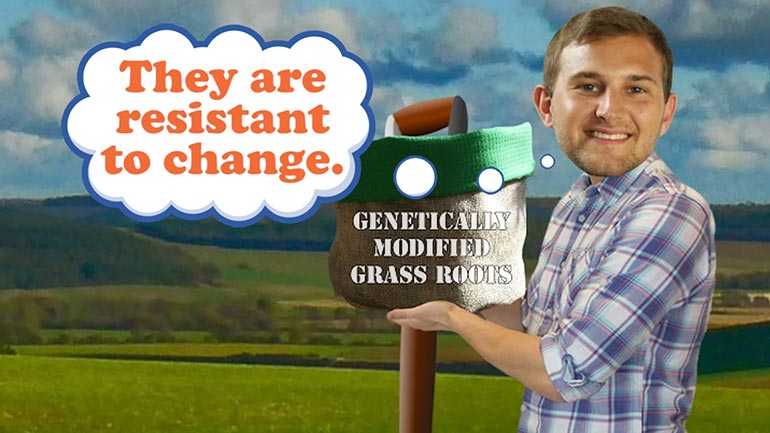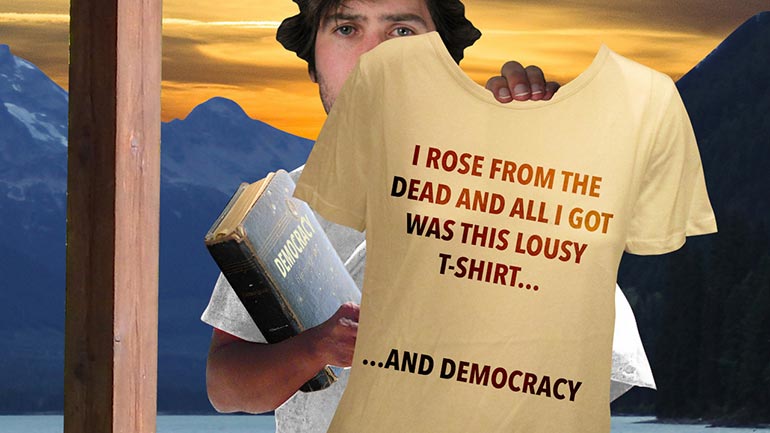ShmoopTube
Where Monty Python meets your 10th grade teacher.
Search Thousands of Shmoop Videos
African History Videos 63 videos
Home to the biggest river, the biggest desert, and some of the biggest land animals in the world, Africa is so much more than what most media would...
Stop everything and check this video out. This guy from Carthage named Hannibal used battle elephants. Battle. Elephants. Carthage has a pretty ric...
Today's lesson: Nubia. Remember not to call it Egypt Jr. to its face...it's kind of a sensitive issue.
African History 5: Red Rubber 8 Views
Share It!
Description:
We wish we were just talking about bouncy balls. Just to warn you, this video is going to cover some heavy issues involving genocide in Africa. It's a sad part of history, but it is history. And ignoring it would be an injustice to the people it affected.
Transcript
- 00:04
Economic exploitation, cultural destruction, land theft…these are just some of the greatest
- 00:10
hits of the European colonization of Africa. [Records of European Colonization of Africa on a shelf]
- 00:12
It couldn’t possibly get worse, right?
- 00:15
Wrong.
- 00:16
How about the systematic mass extermination of African people?
Full Transcript
- 00:19
Yep, we’re talking about genocide.
- 00:22
Although mass murder was in every European powers’ copy of Colonialism for Dummies…there [Soldiers fighting]
- 00:27
were two that amped it up to genocidal levels.
- 00:30
The culprits were Belgium and Germany.
- 00:33
We’re guessing one of those isn’t so surprising…
- 00:36
Belgium’s foray into genocide went down in the Congo River basin. [Belgiums path into genocide]
- 00:40
After trying to stand up to the slave trade, it was demolished by the slavery-addicted
- 00:44
Portuguese and their African allies.
- 00:46
Eventually, Belgium’s King Leopold II took over the Congo for humanitarian purposes. [King Leopold claims Congo]
- 00:51
…meaning that he was going to confiscate all the land and force the people to work
- 00:55
on plantations.
- 00:56
Great, so instead of being shipped off to be slaves in other lands, the Congolese now [Congolese man working as slave in homeland]
- 01:01
had the convenience of being slaves in their homeland.
- 01:04
But that’s not even the worst part.
- 01:06
After the ivory trade didn’t turn out as much profit as the Belgians wanted, the rubber [Ivory ships closing]
- 01:10
trade took over.
- 01:11
OK, a slow-down on killing elephants might sound like a good thing…and it is… [Elephant shopping]
- 01:16
…but what most people don’t know is that rubber trees are…practically pure evil.
- 01:20
The sap is like acid and can blister off flesh in under a minute. [Sap lands on man]
- 01:24
To get workers, Belgian companies forced almost the entire population to harvest a certain
- 01:29
quota of rubber.
- 01:30
If you didn't meet your quota, company mercenaries would cut off your hand or foot with a machete. [Mercenary cuts off mans hand]
- 01:36
They were NOT fooling around.
- 01:38
When all was said and done, as many as 12 million people died, making what’s called
- 01:43
Red Rubber one of the worst genocides in all human history.
- 01:46
All right, now let’s shine a light on the genocide champs: Germany. [Flash light shines on Germany]
- 01:50
This bout of ethnic cleansing took place in Namibia and focused on the local Heroro
- 01:56
and Nama tribes.
- 01:58
What was their crime?
- 01:59
They had the audacity to rebel against German rule. [Tribes rebelling against Germany]
- 02:03
This genocide only wiped out around 100,000 people, which is tiny compared to Red Rubber.
- 02:07
But it gets extra evil points for being a main inspiration for the Holocaust.
- 02:12
The Heroro and Nama genocide was full of all the horrific things we’ve unfortunately
- 02:16
come to expect from genocide.
- 02:19
They had concentrations camps where prisoners lived in lethal conditions. [Prisoners of tribes in concentration camps]
- 02:24
Other ghastly atrocities included people being forced into the desert, where they died of
- 02:29
starvation, dehydration, or the poison Germans put in the wells. [People on a desert]
- 02:33
Yep.
- 02:34
Poison in the wells.
- 02:35
Like being abandoned in the desert wasn’t bad enough.
- 02:37
There were also rape camps, where women were forced to have sex with German troops. [Woman throws stone at german troop]
- 02:42
The Germans were already into racial purity, so the children born of these unions didn’t
- 02:46
fare too well.
- 02:47
To say the least.
- 02:49
There was also an industry of sending native skulls and body parts to German scientists [Scientist inspecting skulls]
- 02:53
for experimentation.
- 02:55
Heroro women were even forced to clean the skulls of their people with shards of broken
- 03:01
glass.
- 03:02
One scientist who benefited from this atrocity was geneticist Eugen Fischer. [Fischer in a lab]
- 03:06
After studying lots of African body parts, he was inspired to help write a lovely book
- 03:11
called…The Principals of Human Heredity and Race Hygiene.
- 03:15
This was full of pseudo-scientific “evidence” that Africans were innately inferior to white
- 03:22
Aryans.
- 03:24
Guess who felt inspired by this book? [Hitler reading a book]
- 03:25
Yep.
- 03:26
Adolph baby...
- 03:27
He even mentions it in his own best-seller…Mein Kamph.
- 03:29
So in a lot of ways, the genocide in Namibia was just a warm-up for what Germany would
- 03:35
one day unleash back in Europe.
- 03:37
So there you have it, folks.
- 03:39
Germany and Belgium—duking it out for the most awful colonial power award. [Germany and Belgium fighting in a boxing ring]
- 03:42
Red Rubber, the Namibia genocide…both horrific in their own special ways.
Related Videos
Home to the biggest river, the biggest desert, and some of the biggest land animals in the world, Africa is so much more than what most media would...
Didn't get enough of the French Revolution the first time around? We've gotcha covered. Check out our second French Revolution video, preferably wi...
Famine is one of the biggest problems in Africa. Find out why it's such a complex problem, and what's being done to combat it.
